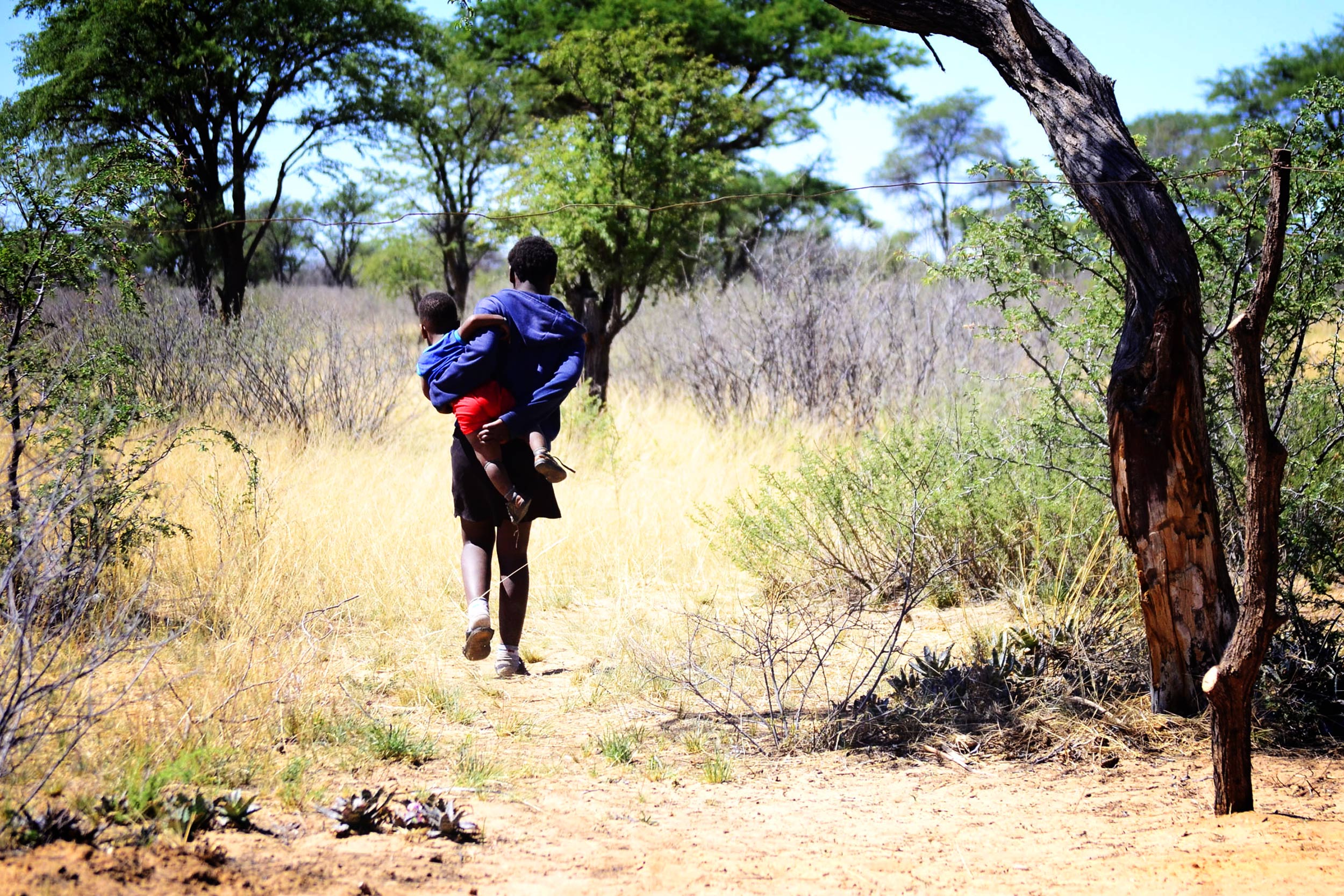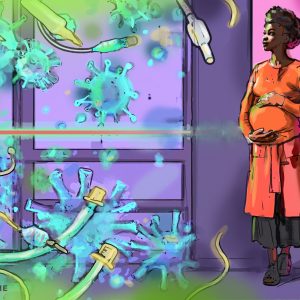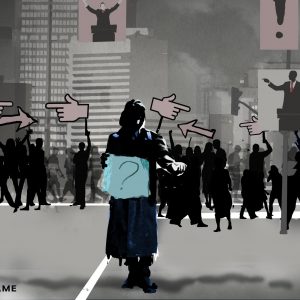Ratlou: A violent place for young girls
In the North West’s Ratlou Municipality teenage girls living in impoverished communities, without access to decent healthcare and proper policing, endure statutory rape and exploitation.
Author:
12 October 2020

In November 2018, Tebogo Modise entered a packed Thutlwane Community Hall in Madibogo Village to welcome delegates to the Child Labour Imbizo.
Surrounded by some of the most impoverished communities in the province and in front of a high-level government delegation, Modise spoke about a human rights crisis.
“We are a municipality with a history of not only child labour, but a number of social ills [including] high-rate unemployment, high-rate illiteracy, poverty [and] teenage pregnancy,” she said.
This would be one of the many events she would hold in her two-year stint as the executive mayor of the Ratlou Local Municipality. During her tenure, Modise did what most politicians in the district had failed to do: acknowledge reality without sugar-coating it to suit her party’s narrative.
Related article:
Her appointment by the ANC highlighted one of the many problems that has rendered Ratlou incapable of responding to the socio-economic crisis in the district: factional politics.
Modise became mayor after falling out with then North West premier Supra Mahumapelo. She would later watch the capital Mahikeng erupt into scenes of violence as a result of factionalism.
The ANC in the North West recently announced the recalling of mayors and chief whips in five municipalities because of corruption. Though Ratlou was spared, years of mismanagement and neglect have left the district besieged by an economic crisis that is beginning to destroy its best last hope: its young people. The murder of a 22-year-old woman by her boyfriend in Setlagole earlier this year shocked the country, but local authorities have been in a decade-long fight against gender-based violence.
In 2016, social development deputy minister at the time, Hendrietta Bogopane-Zulu, the Korean ambassador Yeon Ho Choi and United Nations representative Esther Muia gathered 1 800 girls in Mareetsane Village and convened a girls’ assembly.
The event was held in response to reports that about 3 000 girls around Ratlou were pregnant. It was an attempt to address a crisis that has come to define the district. Nearly half a decade since that gathering, the number has doubled and, according to some residents, it is rising.
The stigma of teenage pregnancy
As their peers across the province sat for their 2019 grade exams, 6 000 learners, mostly young women between the ages of 11 and 16 in Ratlou, were reported to be writing exams while worried about becoming young parents. Others languished at home because they were either in the advanced stages of their pregnancies or had completely dropped out of school.
According to some of the teenagers, poverty is the main driving factor behind their exploitation as it often puts them in a vulnerable position that is taken advantage of by older men with money. But they also feel they have become sacrificial lambs in decisions that have nothing do with them.
“You fall pregnant young but are made to feel other things. Like the world is ending, and you’re responsible. It’s confusing. People will say you fell pregnant because you want SASSA money,” explains a Mareetsane teenager who has seen some of her peers go from star learners to pariahs in the village because they fell pregnant young.
Related article:
Another teenager in Madibogo, who fell pregnant at the beginning of 2019 when she was in grade 10, said for her the shame was the hardest part.
“Some girls drop out not because of health reasons but because you’re afraid what people will say. Only a few of us were brave enough to keep going to school.”
Most of the young women fear speaking about their experiences. But according to some parents in the district, the exploitation of teenage girls is inevitable.
“Things are bad, but again what do you expect in a place like this? People are unemployed and hopeless, which breeds a lot of wrong things,” says Buti Odirile, who has watched the village of Setlagole go from a quiet rural place to something he no longer recognises. Setlagole is Ratlou’s centre of power. It is where authorities rush whenever there is a crisis in the district.
Lying 70km outside of Mahikeng, Setlagole is also part of rural communities in the province that have historically been sidelined in favour of villages on the periphery of the capital Mahikeng. This often leaves young people in these places more vulnerable to exploitation than their peers in the capital. Communities closer to the capital often receive services on time, and the economic outlook is also usually better.
Overwhelmed health facilities
The province’s failing health system – as highlighted by the 2018 crisis, which saw health workers across the province downing tools in protest against corruption in the sector – and the rising number of teen pregnancies have together swamped the area’s health facilities.
Social worker Kenalemang Menong has spent much of her career mediating in high schools in the Ngaka Modiri Molema District. In her opinion, it’s not just lack of facilities that fail young rural women but also that those facilities often are poorly resourced.
“In my experience education, or lack of, is still the biggest challenge, but health facilities such as clinics which contribute in educating communities are often so overwhelmed that they struggle to complete and perform their mandate.”
Related article:
In 2006, Christine Williams’ Mapule Construction completed the construction of Setlagole Local Clinic. Williams and her team were part of a group of 34 women contractors benefiting from Edna Molewa’s rapid development campaign. But her work was more significant than that. She was constructing a clinic that would cater mostly for women.
“The building of this clinic was not by mistake. It was a necessity that could not be avoided. We come from an era where we saw our mothers, sisters and wives giving birth under trees and bushes,” then executive committee member for public works Howard Yawa said at the hand-over ceremony.
In the two decades since the clinic was built, it has become the single most important institution in the village. Although built for maternal care, over the years the clinic’s capacity has been curtailed by a growing socio-economic crisis.
Police failures
The rising number of pregnant teenagers as a result of sexual exploitation or statutory rape by older men – often by close relatives – is worrying, especially as the cases are not always reported. According to experts in the province, fear of intimidation and the treatment of victims by the police often adds to the problem.
“Police officers often have a poor understanding of the impact of trauma and the consequential needs of a victim. Police officers are unable to render care [or] support. They are employed to service justice and in the process will sometimes forget about the emotional trauma of the victim. As a result, there is little or no trust [in] the quality of the police investigation,” says Retha Bloem, North West University professor and research director of Community Psychosocial Research.
Related article:
Bloem has done extensive work in psycho-behavioural science and social work. According to her, lack of confidence in the criminal justice system does more harm to the process of getting justice for victims than we might be willing to admit.
“There is a huge fear of retaliation or intimidation by the offender, especially when combined with a lack of confidence that the legal process will result in a conviction. But there’s also a fear of legal processes, including experiencing rudeness and poor treatment by the police. If there is trauma present, there’s also the fear of having to relive the trauma in court and during the investigation.”
Land dispossession
The fight against gender-based violence in Ratlou has been largely ineffective mainly because of a failure to address the economic marginalisation of unemployment and poor basic services. It is a part of the story that much coverage of the crisis has failed to tell. The community is reliant on mining and agriculture, sectors with long histories of exploitation in South Africa, particularly for working-class communities. The crisis is as much about the economy as it is about sexual exploitation.
Historically, Ratlou has seen its fair share of exploitation, particularly that of children. According to a 2015 Stats SA survey, over half a million South African children are involved in a form of child labour. Some of those children hail from the Ratlou district. As farms around the province reckon with the effects of Covid-19, there is fear that the situation will worsen without consistent intervention from the state.
According to experts like Bloem, it is young women who will be most affected. “[As social workers], we are very worried about the plight of these young women in the rural North West, especially now in the midst of pandemic. We know that many do not have proper support structures at home.”
Related article:
Bakang Seilane is a teacher at Ikopanyeng High School in Setlagole, which defied the odds in 2019 to record a 90% matric pass rate. Seilane argues that at the core of Ratlou’s crisis is a lack of opportunities for young people.
“A lot of young people, especially teenage girls, since they’re the most vulnerable in this situation, lack exposure to opportunities. Mistakes are inevitable when you’re young, but if we could expose them to a world beyond the district, I believe it would be easier for them to pick up the pieces.”
Menong also believes that while the buck stops with addressing structural issues, it is often the lack of compassion from communities that tips the boat for young women when making decisions.
“When we talk about teen pregnancy, we tend to forget the pressures of teenagehood. Young people have their own lives and are dealing with so much more than trying to perform being good children to us.”
Powered by exploitation
The N18/Vryburg Road, which connects communities in Ratlou to the rest of the province, is nestled between vast swathes of open land. But as the land expands, houses that belong only to farm owners begin to appear. Most are built on commercial farms, and it is on these that the children of Ratlou come to carve out a life when all else fails. It is also where they are often exploited.
But this exploitation is no longer confined to farms – more and more of the brutality is finding its way home. According to Bloem, this happens because we are yet to address sexual assault as a human rights issue.
“Although a lot of the acts take place in the safety of a house, the focus on human rights in understanding sexual assault should also be addressed.”
For Seilane, like many other parents in the district, the gender-based violence crisis in the district is a moral issue that needs to be urgently addressed.
“Adults are ultimately responsible for what happens to a lot of our young people, and we need to take responsibility. Most of the girls come from vulnerable families. This often makes them easily impressionable to things like money. Often when we deal with these issues, we address young people but not always the people who perpetuate the problems.”
Related article:
Farmers in the district see themselves as business people who become victims of government failure to transform the community – especially when the socio-economic crisis spills over and finds expression in the farm crimes that have become the rallying cry of conservative right-wing groups such as Afriforum. The exploitation of farm workers is seldom explored by the media.
“We need to address structural factors, but most importantly, adopt a multi-stakeholder, multi-sectoral approach where all role players will adopt a comprehensive understanding of the status quo, take ownership of the problem and work united towards a tailor-made solution,” says Bloem, who notes the time wasted on playing blame games.
For Menong, the tools already exist, they just need to be used with more honesty and creativity.
“If we are going to make any impact in the fight against gender-based violence and teen pregnancy then we have to do our work with honesty. We know that parents, especially in rural areas, don’t always have the resources to educate their children about safe sex. It’s important then that our curriculum addresses this.”






